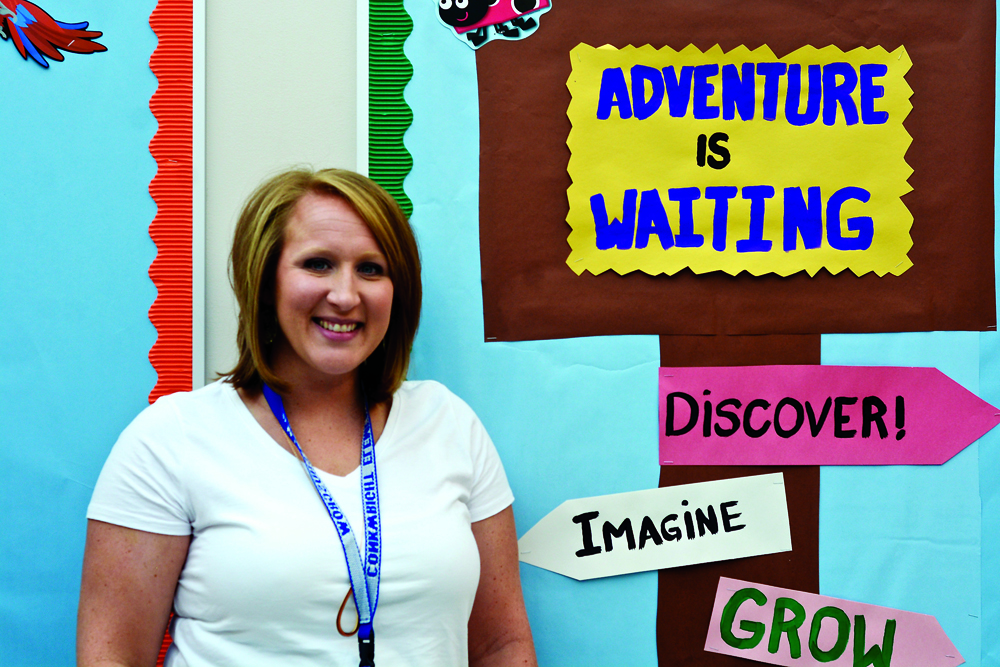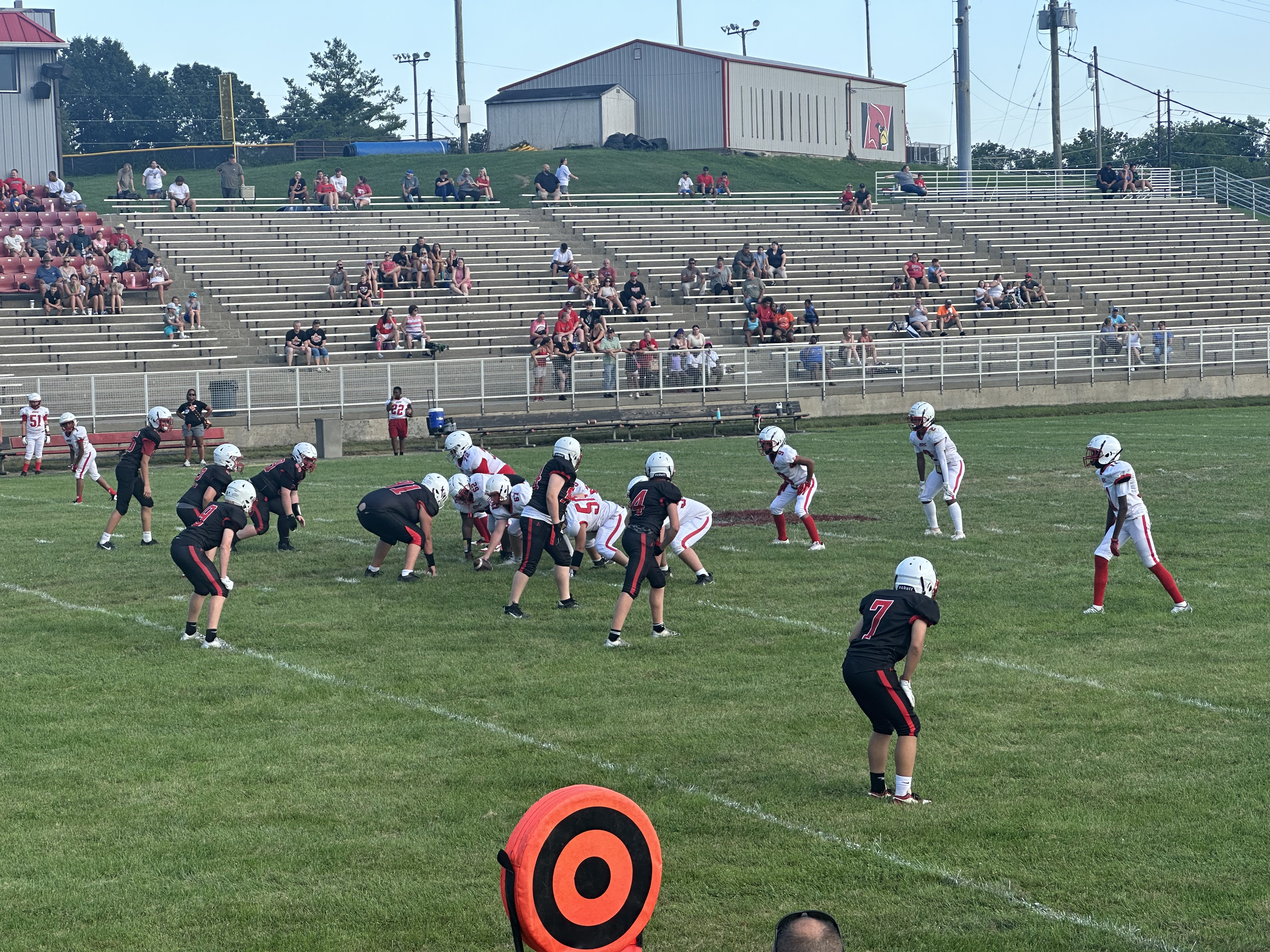Meet the Teacher: Counselor aims to provide safe space for students
Published 10:17 am Tuesday, September 17, 2019

- Kari McGrath is a counselor at Conkwright Elementary School. This will be her second year at Conkwright and eighth year working as a school counselor. (Photo by Lashana Harney)
Kari McGrath spends her time trying to get students to open their “invisible backpacks.”
Every student has one, and each day, they carry things in it others might not see — hunger, poverty, the emotional strains of their outside lives, trauma and more.
“My role is to try to get kids to open up and talk and to get them to process whatever’s going on in their day,” McGrath said.
Trending
McGrath is a counselor at Conkwright Elementary School.
“I feel like the profession chose me,” McGrath said. “… It fell in my lap … I feel like that’s what I was meant to do and what I’m supposed to do.”
The Danville native received her bachelor’s degree in psychology from Campbellsville University and a master’s in school counseling from Eastern Kentucky University.
“I worked summer camps when I was in college,” McGrath said. “And I had a little girl I worked with that had lots of big questions about life. And she was only 8. I think that was my aha moment. And I tried psychology my next semester in school and loved it. And I guess they say the rest is history.”
When McGrath graduated from Campbellsville, she started working for New Vista, formerly bluegrass.org. She was a service coordinator who did school-based counseling and family counseling for about six years.
During that time McGrath learned she enjoyed working with children in the schools and opted to return to school for her master’s degree.
Trending
“My favorite part of working for bluegrass was the fact I got to go into the school systems every day and not only help kids who are struggling with social, emotional needs, but also help teachers help kids,” McGrath said. “It felt like a calling for me. I love kids, and I want to be there and help kids through whatever tough times they may be going through. But I also really enjoy the aspect of school counseling and where you get to work side by side with teachers helping them in the classroom help those struggling kids.”
Her first counseling job after graduate school was at Strode Station Elementary School.
She then went on to work in Madison County before returning to Clark County last year.
McGrath is now in her second year at Conkwright and eighth year in total as a counselor.
“My favorite part about being a school counselor is when you see kids have those aha moments,” she said. “If I have a kid that has been struggling with social, emotional needs or behavioral needs, and you see them have an incredibly successful day or successful week where they’ve made good choices.”
Working as a school counselor is different from mental health counseling, McGrath said.
“When kids go for mental health counseling to an outside agency, they typically see those counselors for 45 to 60 minutes, once a week,” she said. “And so I feel like our counseling here is more solution-focused counseling, and then also more cognitive-behavioral counseling because we are in a school setting with only seven-and-a-half hours a day. My time with them is in 15 to 30 minutes spurts. The longest I typically pull kids is 30 minutes. And so the time I have with them, we try to accomplish a lot in a short amount of time, and I try to make it meaningful.”
The most challenging part about being a counselor, McGrath said, is those moments where one realizes it’s impossible to fix it all.
“When you have children who are in foster care, when you have children who do have a trauma history, you can’t make that go away,” McGrath said. “I can’t speak for every school counselor or school personnel, but I think if you talk to a lot of us, I think every one of us would say we take a lot home with us at night. You worry about kids and what they’re going through at home, and do they have enough food to eat? Are they being taken care of? Are they being hurt? You worry about your kids and if they’re OK.”
No day is alike as a counselor, which McGrath said she enjoys. But as the eight years as a school counselor have gone by, McGrath said she’s seen the amount of trauma children experience increase.
“We see a lot of children I feel like come in with a lot more social-emotional needs on a daily basis because they have experienced trauma in such a short time in their life,” McGrath said. “And as adults, when we experience something traumatic, our brains are a little more capable of handling and processing. When you’re 6 and 7, and you’re still trying to learn emotions in general, processing a traumatic event, and that can be anything from a car accident that could be traumatic for a child to something more severe that’s happened to them, maybe they are in foster care and they’ve been removed and that’s their traumatic event, it could be a wide range of things, but for kids, it’s harder for them.
“We see a lot of kids struggling in the classroom with paying attention, getting along with friends, having emotional kind of meltdowns because they don’t know how to process what’s going on in their life.”
When students move on from Conkwright, McGrath said she hopes students can take the lessons they’ve learned through counseling with them, whether it’s about friendship, bullying, leadership or more.
She said she also hopes they look back at Conkwright and remember McGrath as someone who was kind, had expectations of them and believed in them.
One way she hopes to do that is to help students deal with the trauma in their lives.
“One of the things we are in the middle of implementing, we have everything ordered, our teachers are aware, we are implementing peace corners in our classrooms,” McGrath said. “… That I feel like is the first big thing we’re doing to try to become a little more trauma-sensitive, is to have a special place in each classroom for kids to go to when they need a minute.”
McGrath said she suffered through a traumatic loss, so for her, experiencing a traumatic grief process helps her to understand her students better.
“I kind of cross my fingers every day that those life experiences make me better, not only personally, but make me a better colleague and a better counselor for those around me, just to be able to empathize with what other people and kids are going through,” she said.







